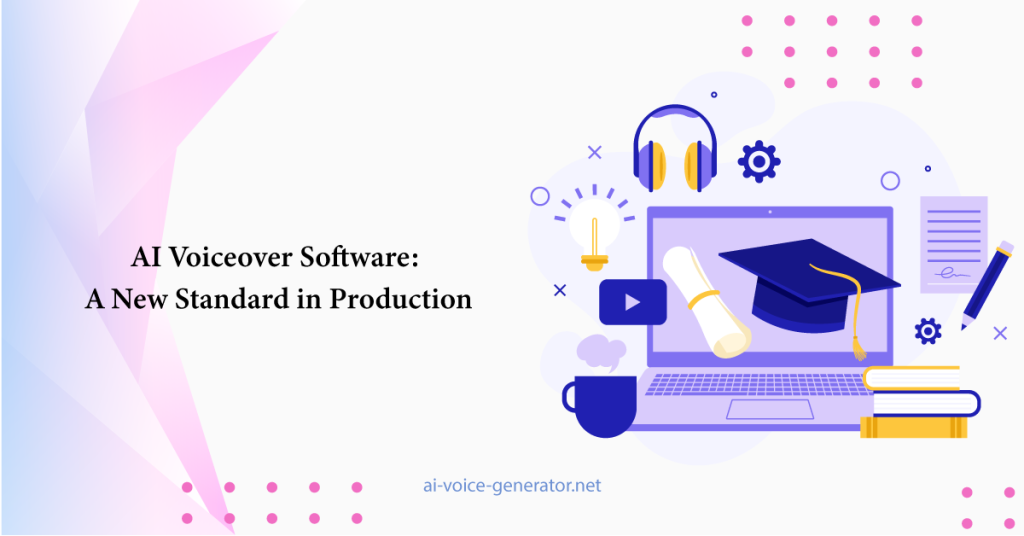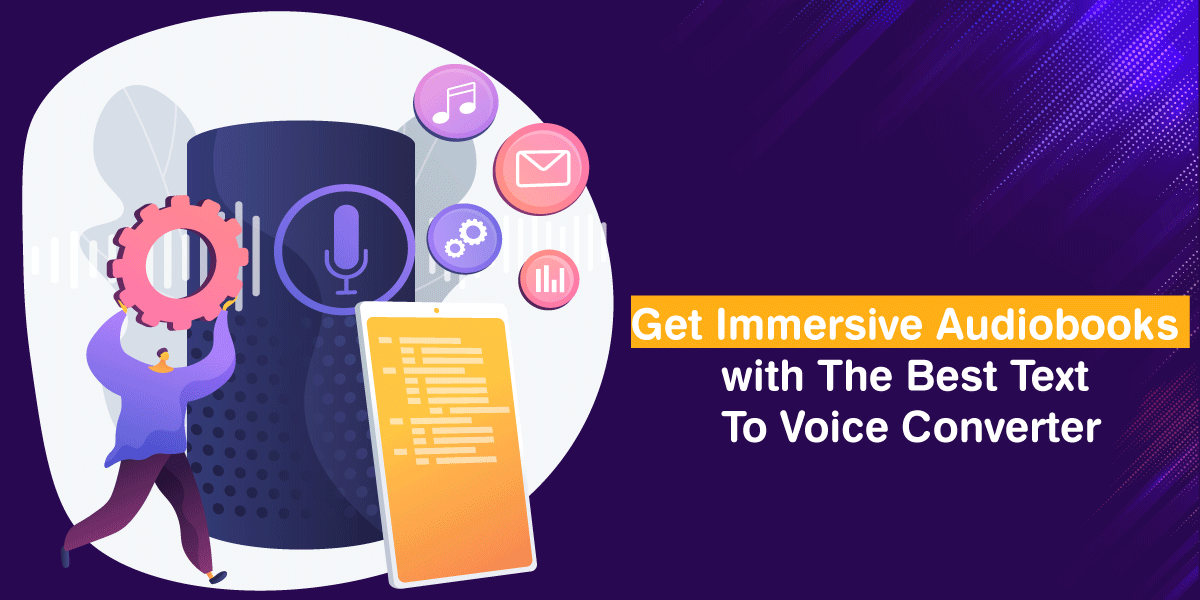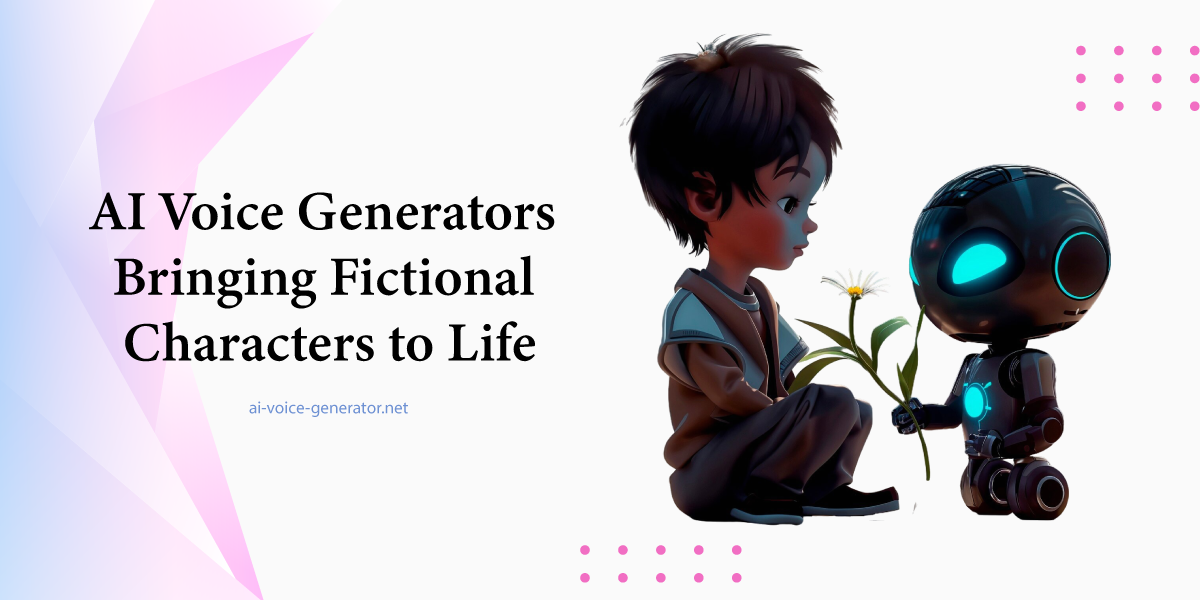
AI Voice Generator in 2025: Revolutionizing Personalized Learning Experiences
The future of education is not just digital—it’s deeply personalized, and artificial intelligence is leading this charge. Among the most transformative innovations today is the AI voice generator, which is becoming an integral component of next-generation learning systems. This technology is redefining how learners interact with content and setting new benchmarks for accessibility, engagement, and scalability in education.
Text to Speech AI and Its Role in Personalized Learning
Traditional e-learning often fails to engage students with different cognitive styles. Enter text to speech AI, a game-changer that converts written material into human-like audio, providing auditory learners with a powerful alternative to text-heavy modules. By offering content in a natural, expressive voice, learners can absorb material more effectively, especially those with learning differences like dyslexia or visual impairments.
As educational platforms scale to meet the needs of millions of students globally, text to speech AI ensures that no one is left behind. It provides multilingual support, real-time content adaptation, and consistent quality, making it a preferred choice for both academic institutions and private learning platforms.
Why AI Voiceover Tools Are Essential for Modern Education
The rise of AI voiceover tools is not a passing trend but a response to the pressing need for scalable voice solutions in the digital classroom. These tools allow educators and content creators to produce high-quality audio without the time-consuming and costly process of hiring professional voice actors. In the context of personalized learning, AI voiceovers provide narration that can be modified in tone, speed, and emotional delivery based on a learner’s preference or performance.
AI-generated narrations not only reduce production costs but also enable the rapid deployment of updates to educational content. In real-time adaptive learning systems, such responsiveness is invaluable. The voice becomes a dynamic interface, tailoring itself to each student’s journey.
Best AI Voice Generators 2025 Are Changing the Standards
What separates the best AI voice generators 2025 from earlier models is their deep learning architecture and emotional nuance. These generators can now inflect emotion, adapt accents, and even replicate the unique speech patterns of individual instructors. They’re no longer just narrating—they’re communicating.
Platforms like AI Voice Generator exemplify this shift, enabling the production of lifelike voiceovers for e-learning that feel personal and authentic. Their ability to integrate seamlessly with learning management systems (LMS) allows educators to scale content creation while maintaining a human touch.
AI Voice Synthesis Enables Adaptive Curriculum Delivery
The technical foundation of these advancements lies in AI voice synthesis—the process of creating human-like speech through deep neural networks. Unlike earlier models that sounded robotic and unnatural, 2025’s synthesis technologies can deliver tone-sensitive, context-aware audio that responds in real-time to learner interactions.
This capacity for nuanced speech enables the development of adaptive curricula. If a student is struggling with a concept, the AI system can slow down, change tone, or provide an encouraging voice to boost motivation. In contrast, more advanced learners can receive faster-paced narration, supporting more efficient knowledge acquisition.
Exploring the Boundaries of AI Voice Cloning in Learning
One of the more controversial yet undeniably powerful applications is AI voice cloning. This technology replicates human voices with striking accuracy, raising ethical questions but also presenting unique opportunities in education. Imagine a virtual tutor that sounds exactly like a student’s favorite teacher—or a parent reading bedtime stories remotely through an AI-generated voice.
In personalized learning, cloned voices can make digital experiences feel familiar and comforting. However, transparency and consent are essential. Platforms using AI voice cloning must ensure ethical safeguards while leveraging this tool for enhanced learner engagement.
How AI Voice for Content Creators Enhances E-Learning Assets
In the booming creator economy, AI voice for content creators has opened up new avenues for educational influencers, YouTubers, and course developers. With AI-generated voiceovers, content creators can localize their material into multiple languages, maintain consistent branding, and produce high-quality audio without needing to record daily.
This capability significantly lowers the barrier to entry for individuals producing microlearning modules or explainer videos. Whether it’s a tutorial on trigonometry or a course on digital marketing, content creators can now scale their offerings and customize them for diverse learning audiences.
Tracking AI Voice Technology Trends in the Educational Space
The current wave of AI voice technology trends is focused on personalization, emotional intelligence, and real-time responsiveness. 2025 has brought significant strides in neural rendering, where AI models can respond with voice inflections that match the sentiment of the text or the emotion of the user.
Additionally, privacy-first voice personalization has become a critical concern. Educators and platforms must now balance powerful customization tools with ethical voice usage and secure storage of voice-related data. As voice interfaces become more common in education, these trends will shape both learner trust and regulatory frameworks.
AI Voiceover Software Streamlines Educational Media Production

For institutions and individuals alike, AI voiceover software has become the backbone of scalable e-learning development. These platforms allow creators to choose from a wide variety of voices, languages, and emotional tones. Some even offer drag-and-drop scripting, making them accessible to users with no prior technical experience.
This software isn’t just for large universities or corporations—it’s empowering small tutoring agencies and independent educators to produce professional audio content for their students. As a result, the classroom of the future is no longer bound by geography or limited budgets.
AI Voice Generator for YouTube and the Expansion of Edutainment
YouTube remains a vital platform for education, and the AI voice generator for YouTube is fueling a new wave of “edutainment” content. Educational creators are using AI-generated narrations to enhance their videos, making complex topics more digestible and visually aligned with audience expectations.
With AI, creators can add subtitles, multiple language tracks, and even adjust voice tone to match video style. This democratization of voice technology is what’s pushing YouTube’s educational ecosystem into an era of global accessibility and niche personalization.
The Psychological Impact of Voice in Learning Environments
While technology evolves, the human brain remains attuned to voice and tone. Studies in 2025 indicate that students respond more positively and retain more information when lessons are delivered through voices that match their emotional and cognitive states. This is where AI-generated voices have a unique advantage—they can be trained to reflect motivational tones, calming delivery, or energetic instruction depending on what a learner needs.
By combining AI voice synthesis with real-time biometric feedback, future platforms could adjust speech delivery dynamically, creating truly empathic educational environments.
Regulatory and Ethical Frameworks Around Voice AI in Schools
As more schools adopt AI-driven learning tools, ethical and regulatory scrutiny intensifies. The use of AI voice cloning or synthetic speech in child-focused environments raises questions about consent, data usage, and psychological effects. Developers and educators must establish transparent policies, ensuring that students and guardians are fully aware of how voice data is used and protected.
Responsible deployment requires open-source models, clear opt-in protocols, and consistent monitoring. The aim is to make voice AI a supportive presence rather than a manipulative force.
Future-Proofing Education with Voice AI Integration
Looking ahead, the integration of AI voiceover tools into immersive technologies like AR and VR will redefine learning altogether. Picture a biology student interacting with a virtual cell, guided by a synthetic voice explaining each organelle. Or language learners practicing pronunciation in real-time with adaptive voice feedback.
Voice will no longer just be a medium of instruction—it will become a learning companion. Personalized, omnipresent, and adaptable to every context, AI-generated voices will be the narrators of tomorrow’s education.
Conclusion: A Human Touch Through Synthetic Voices
In a world where automation often feels impersonal, AI voice generator platforms are proving that machines can enhance the human side of education. When used thoughtfully, voice AI doesn’t replace educators—it amplifies their reach and replicates their intent. The classroom is evolving, and voices—both human and synthetic—are leading that evolution.
As we embrace this shift, tools like the AI Voice Generator are not just technical assets—they’re strategic partners in delivering personalized learning at scale.
Frequently Asked Questions
AI voices in 2025 can replicate a wide range of emotions, with notable improvements in context awareness and tone control.
Yes, AI voice synthesis supports multiple languages and dialects, enhancing accessibility for global learners.
When used transparently with consent, AI voice cloning can personalize learning while respecting ethical boundaries.
They offer emotional intelligence, voice variety, high-quality synthesis, and real-time adaptability.
Absolutely, many are now integrated with LMS and adaptive learning systems for instant content delivery..

